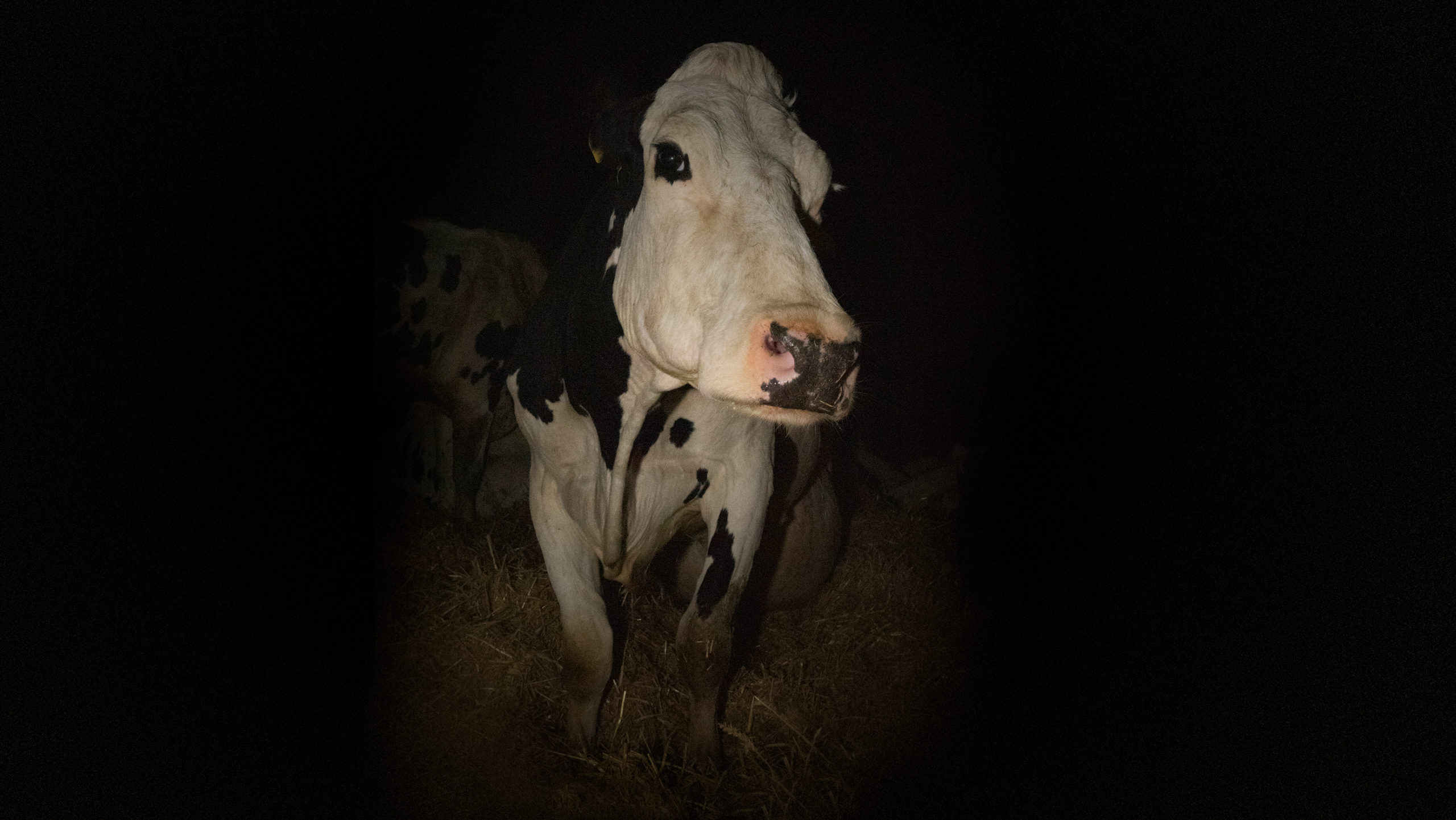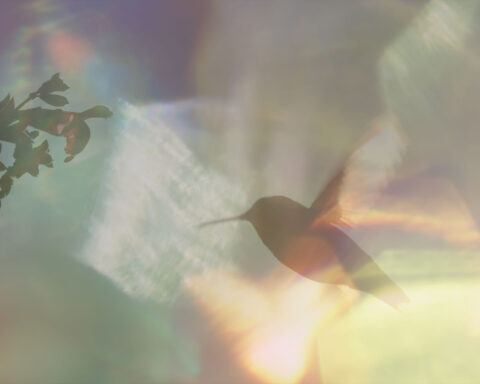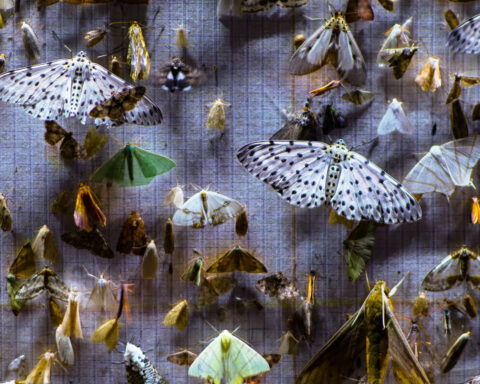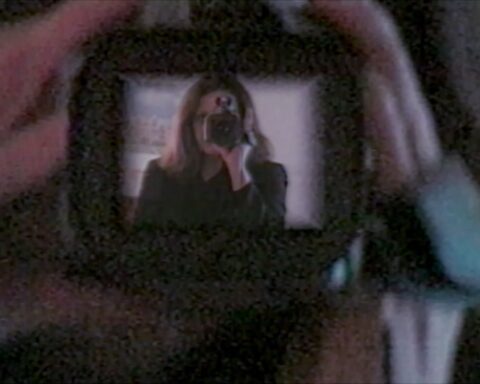In some ways, this is the easiest type of review to write. Cow is an empty attempt to engender emotional response to some farm animals. It employs nauseating camera work and repetitive, banal shots of bovines. It’s coupled with some pop radio and off-screen comments from the farmers, but it’s mostly a series of plaintive moos and the sounds of machinery sucking the milk from udders accustomed to being drained.
Perhaps for those who have never visited a dairy farm, or have been oblivious to where dairy products come from full-stop, there may be something to be gleaned from the days we spend with said cow. Her name is Luma, apparently, and from an objective standpoint it seems that she’s treated about as well as expected from a domesticated animal on what looks to be a well-run and humane operation.
Of course, the very notion of animal product use is anathema to a growing number of individuals, and while the film doesn’t display any outward vegan stridency, its effect may well be amplified for those looking for further justification of their beliefs. Even some of them will be bored by the painfully drawn out sequences, while others will quite literally bend over backwards to develop some sophisticated hermeneutical apparatus to explains Cow’s cinematic contribution.
Maybe it’s a rumination on the exploitation of labour? Could Luma be the worker unable to control the means of production? Or perhaps it’s a feminist interrogation of contemporary society, when after a certain age the spent are not even gifted the proverbial right to be left out to pasture. Alternatively, maybe it’s simply that we are to equate the supposed suffering of one creature with the sufferings of our own species, while at the same time gifting the gormless creature with notions of introspection, grief, and even awe as they stare up into the night sky.
If an artist provides an empty canvas there are those that will gladly fill in the lines, gleefully providing meaning from the meaningless (or at least the overt and simplistic), finding poetry in the cowpatties and philosophy in the weepy eyes and puckered udders. While the film is shot with all the care of a surveillance video or dashcam, it’s edited to emphasise connection with the creature at every level, making its point in ways that, despite eschewing anything approaching narrative, nonetheless drives over and over an attempt to draw us into Luma’s world.
Yet merely calling Cow out as bullshit will, of course, immediately rancor champions of such mediocre and “experiential” cinema, as if somehow some grand point about our consumptive nature has been lost by not falling for the charms of our cowtagonist. If the film was a tight 20 minutes, getting its point across without wasting audience’s time, that would be one thing. But this is a full 90 minutes of watching a cow, a full hour and a half of trying to be amused when the Pogues play on the (clearly non-diagetic) radio programme, or other pop hits that the director cannot help but inject as some sort of not-so-subtle meta commentary.
But what does it matter in the end? If we’re really going to get lost in the existential ennui of Luma and her lot, should we also admit that for fans of the director the very things that make the film boring and banal are exactly what draw them to this? That to decry the stench that some argue is perfume is to already have lost any aesthetic argument? Films with far more meaning and subtlety will be overlooked in favour of this cud-chewing crap, and for a wide selection of indie-film lovers, this will be the dunghill that they’ll gladly climb in which to lay a steak stake. Should we mourn for them, or for Luma and her fellow kind?
For the curious, I encourage you to watch the trailer, as in that format you’re likely to get everything out of the film that’s possible there to, well, milk. For the ambitious, you can give it a shot, and on a large cinema screen if you’re not susceptible to vomiting due to shakycam silliness you might enjoy the errant focus and irritating close-ups. (I, for one, enjoyed the few times that Luma kicked back at those clearly in her personal space, but even this became tiring after the third or fourth time.) Maybe you’ll crave giant tongues proverbially licking off your own afterbirth, and seeing a connection to your own souls in the obsidian abyss of Luma’s eyes.
But for the vast majority of viewers, they simply will be flipping through television and catch a few minutes, quickly get the point, and move on. Produced in part by the BBC, much of whatever impact could be gained will be lessened even further when paired up with whatever other “reality TV” show is on a proximate channel. Maybe the film will generate audience participation nights akin to Rocky Horror, with patrons wearing their favourite cowstumes and dancing along to “Fairytale of New York,” or answering to some of the dialogue we hear from the off-screen caretakers.
Who’s to say, in the end? All of this seems more interesting to contemplate than Cow itself, and maybe that’s the point I’m unable to reconcile. I saw colleagues asleep for much of it who then called it a triumph. Others have bent over backwards while providing meaning only to trip over their own hyperbole in extolling the film’s virtues. If there’s a crisis of faith, I felt it’s not about veganism, it’s about how at a festival where other films were decried for “having too much plot” sees this moo-mination on bovinity somehow struck a chord with cinéphiles unable to simply admit there’s really nothing to bite into, as much as on may wish there to be.
And so fine words will be spilled like so much milk, and those churlish like this writer will sullenly, solipsistically contend that too much methane stench is being emitted in the form of plaudits for this pile of poop. The film may have elicited a crisis of conscience, but it may have more to do with the minutes of my life I will not get back having to confront the epic emptiness of the udderly terrible Cow.
Cow premiered at the 2021 Cannes Film Festival.














